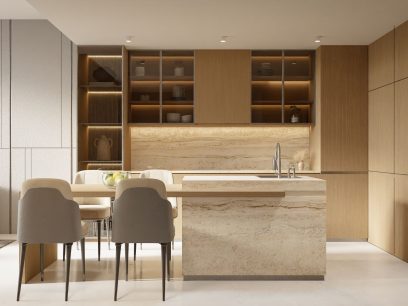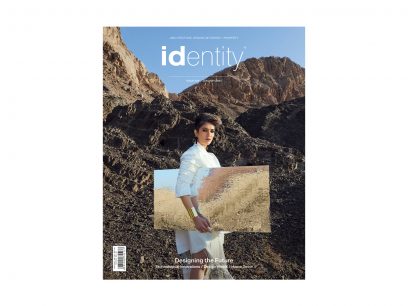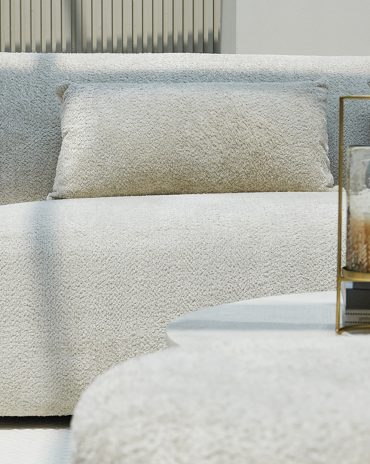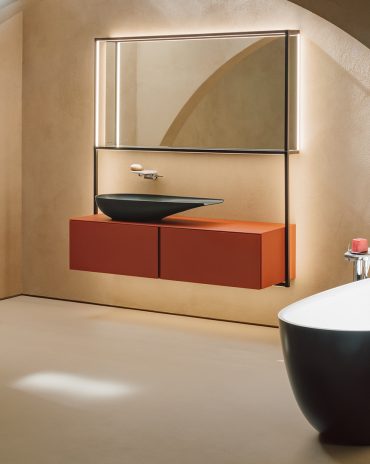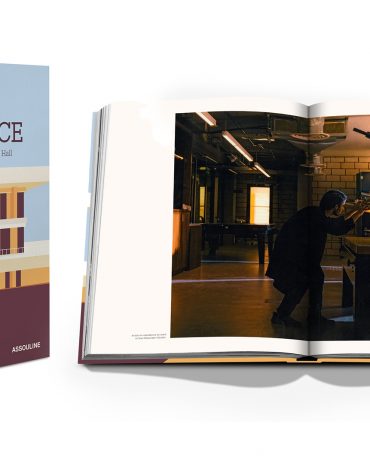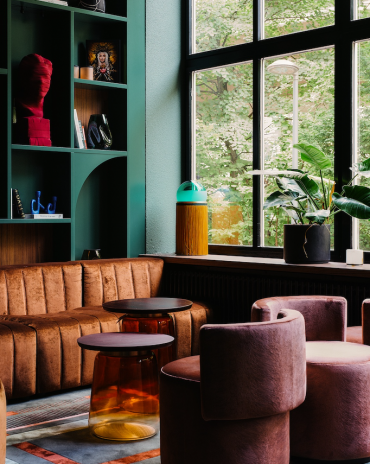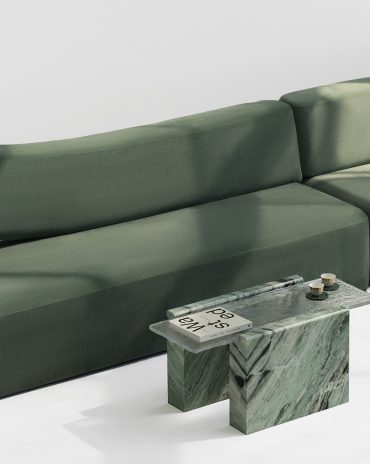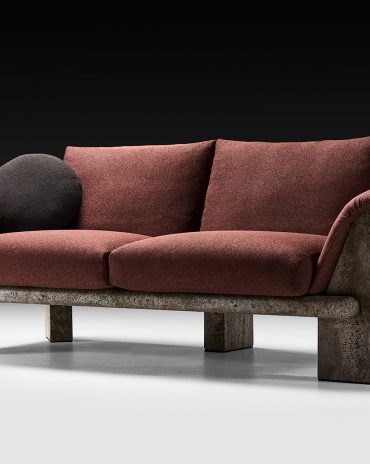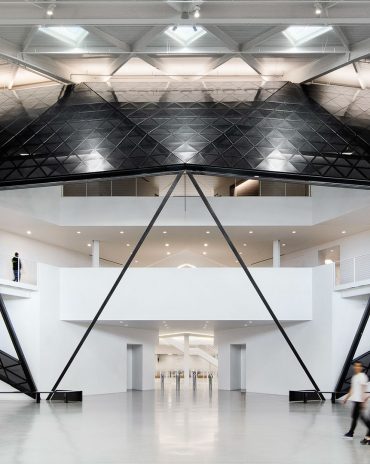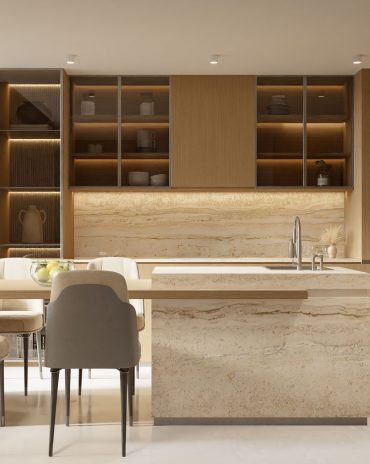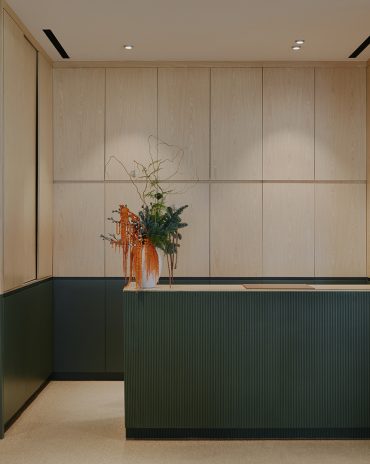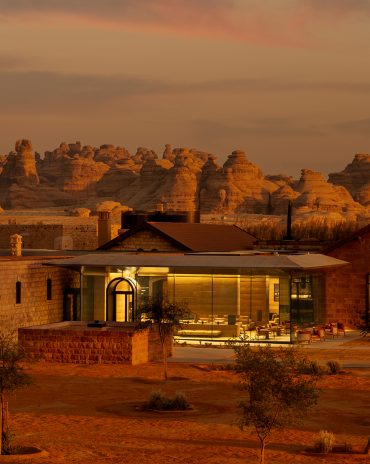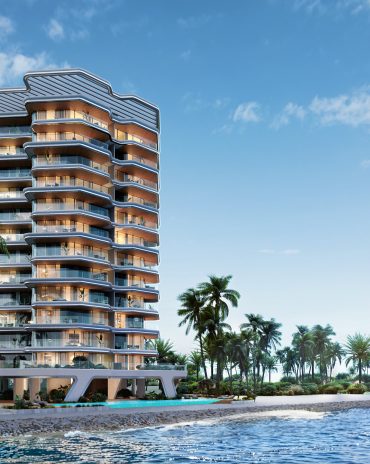Copyright © 2025 Motivate Media Group. All rights reserved.
Read ‘The Craftsmanship Issue’ – Note from the editor
Read our April 2022 issue online on ISSUU
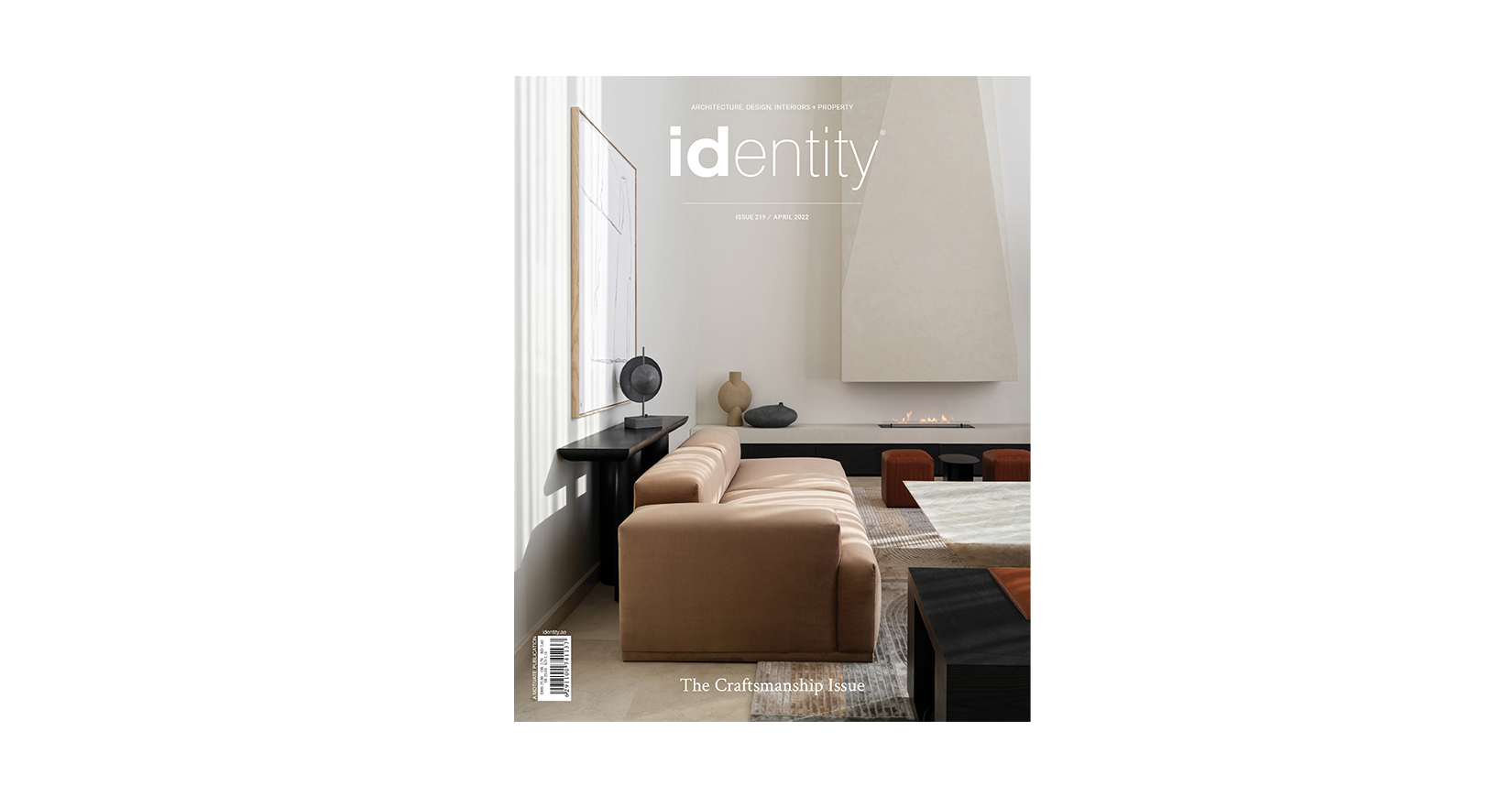
With each passing year we become more obviously confronted by the returned sense of importance that artisanship plays in contemporary design. While traditional techniques and natural materials continue to reign supreme, it is novel approaches which often elevate craft into works of art. And while technological applications are growing equally popular, there is something about creating with one’s hands that is deeply intrinsic to the creative process, something that many designers today value as inherent to their work.
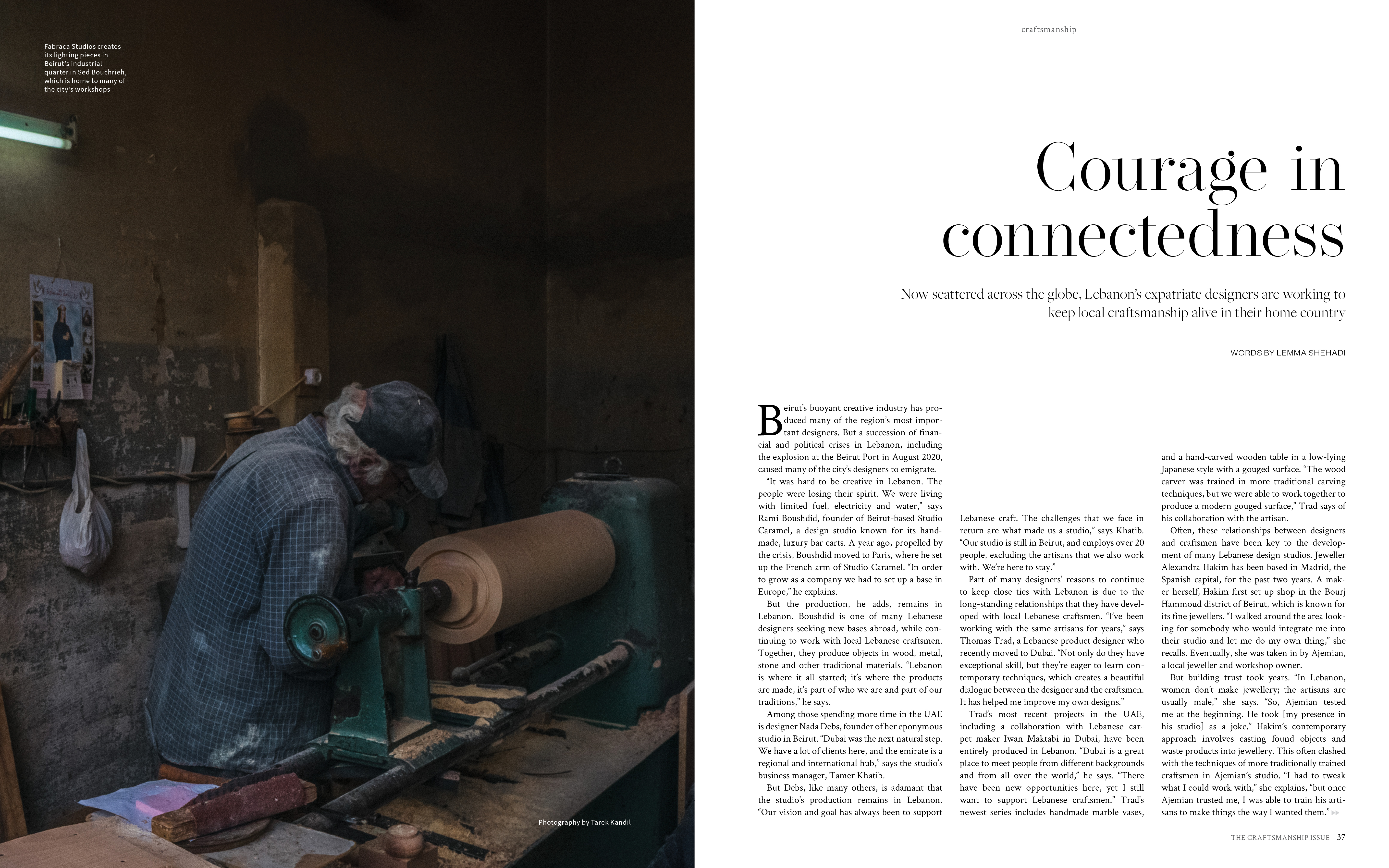
In our annual Craftsmanship Issue, you will discover a wide range of makers from across the globe – some may be new to you, while others will have produced works you may have admired through the years; some are situated as close as the emirate of Sharjah, others as far as the island of Martinique. Yet what these individuals and studios have in common is their commitment to preserving and continuing the legacy of traditional knowledge, now rendered in a whole new contemporary language: one that is fresh and intriguing, yet comfortably nostalgic.
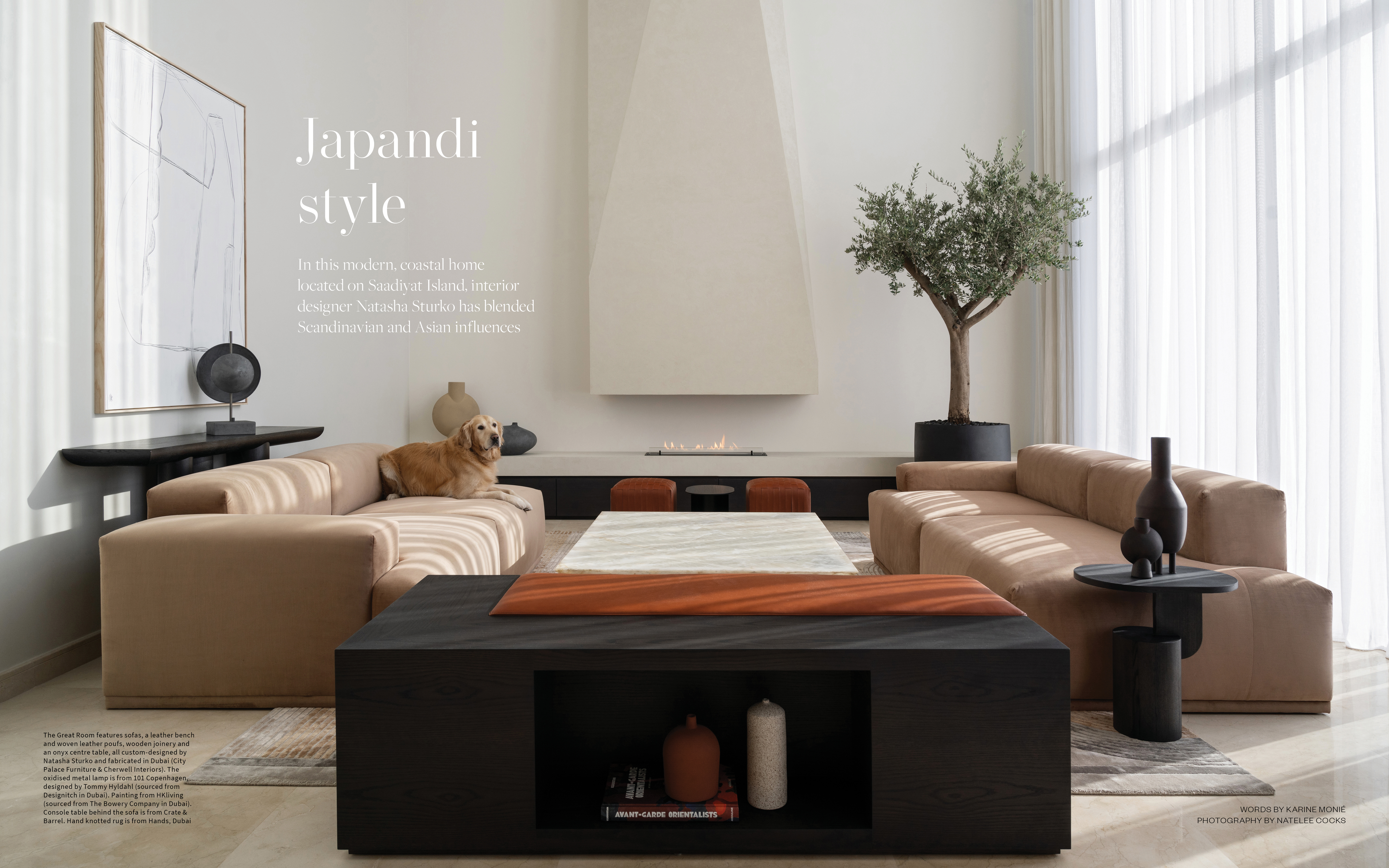
In Lebanon, for example, preserving traditional crafts and supporting local artisans has become a national effort for its creative industry, as the country continues to suffer financial and political crises. And while an increasing number of Lebanon’s creative community have emigrated abroad, support for craftspeople in the country endures, solidifying the vital place these makers hold in the regional design eco-system. An in-depth feature on this topic can be found in the following pages of this issue.
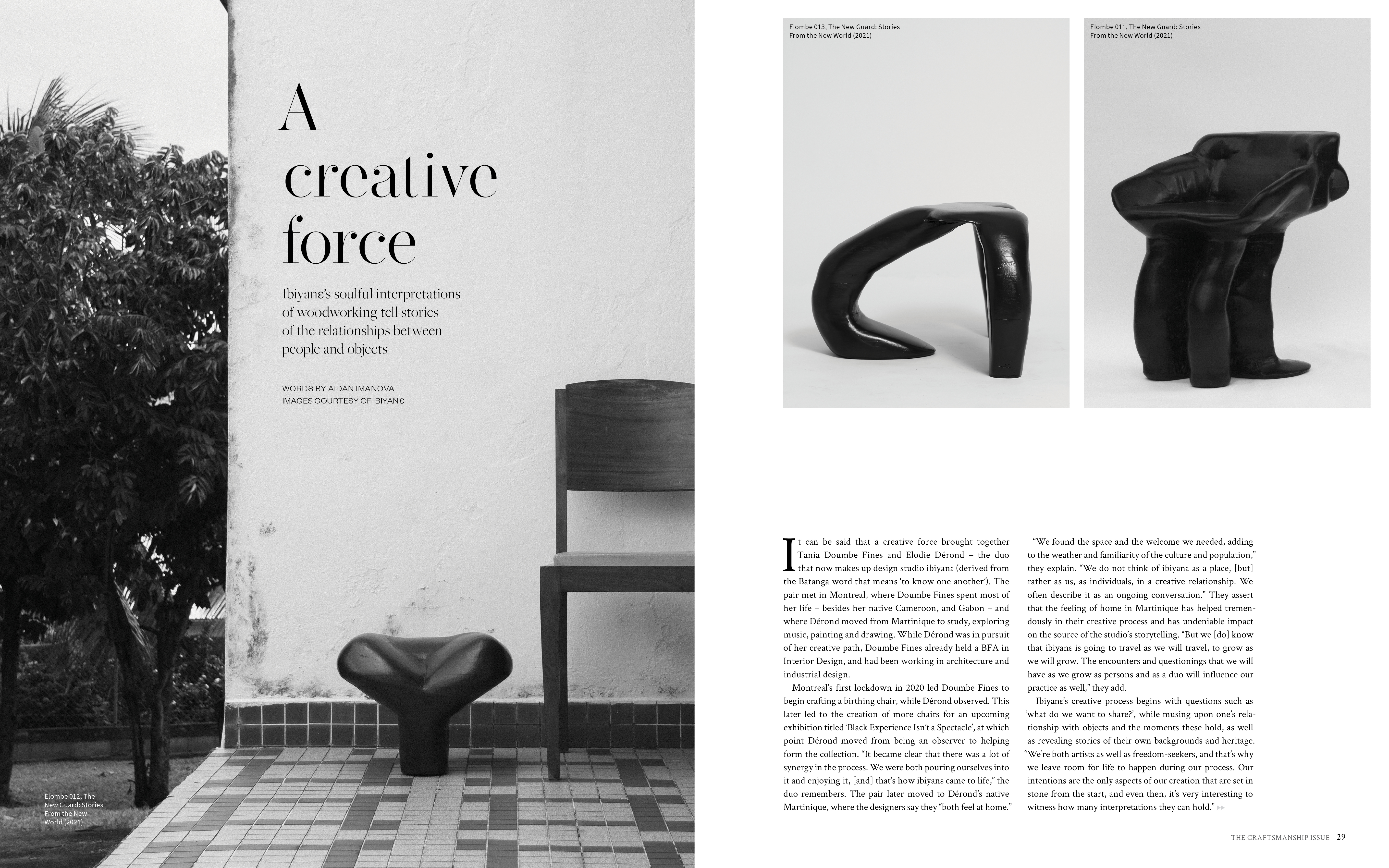
Contrastingly, in Egypt, designers are at the early stages of rediscovering and re-appreciating the value of local craftsmanship, which, for a number of reasons, had not – until recently – evolved into the contemporary sphere. We learn more about the North African country’s creative renaissance by speaking to artist Omar Chakil, whose alabaster furniture and objects seek to raise the profile of traditional materials found in Egypt.
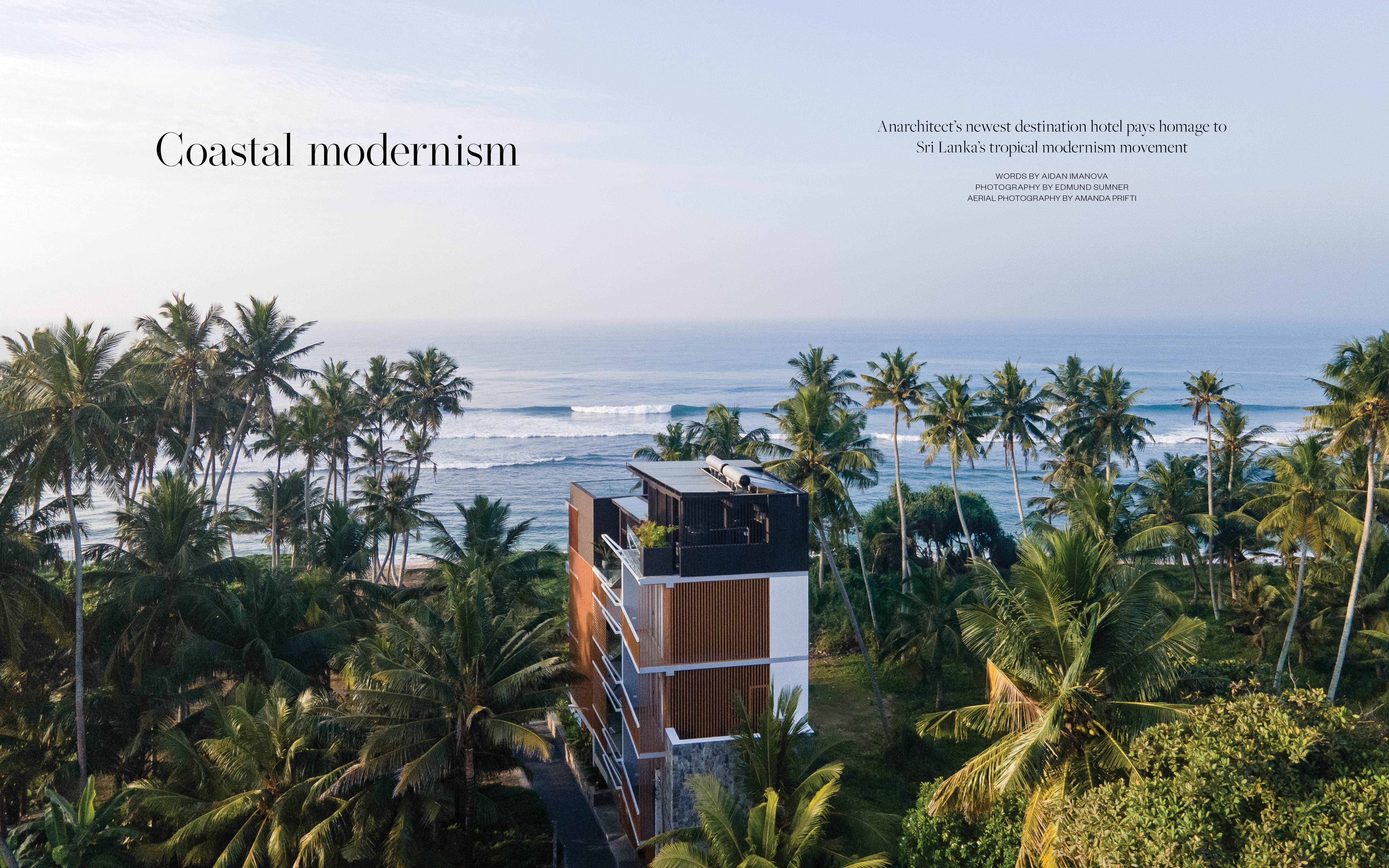
We are also excited to see the long-awaited, Anarchitect-designed Harding Boutique Hotel in Sri Lanka finally open to the public. The property takes inspiration from tropical modernism, which was spearheaded in the country by Sri Lankan architect Geoffrey Bawa. In an exclusive interview, we discuss with Anarchitect’s founder Jonathan Ashmore the challenges of the project, not least due to the Covid-19 restrictions, which led to all construction and craftsmanship being produced locally – with artisans creating joinery and furniture on-site and in close collaboration with the studio.
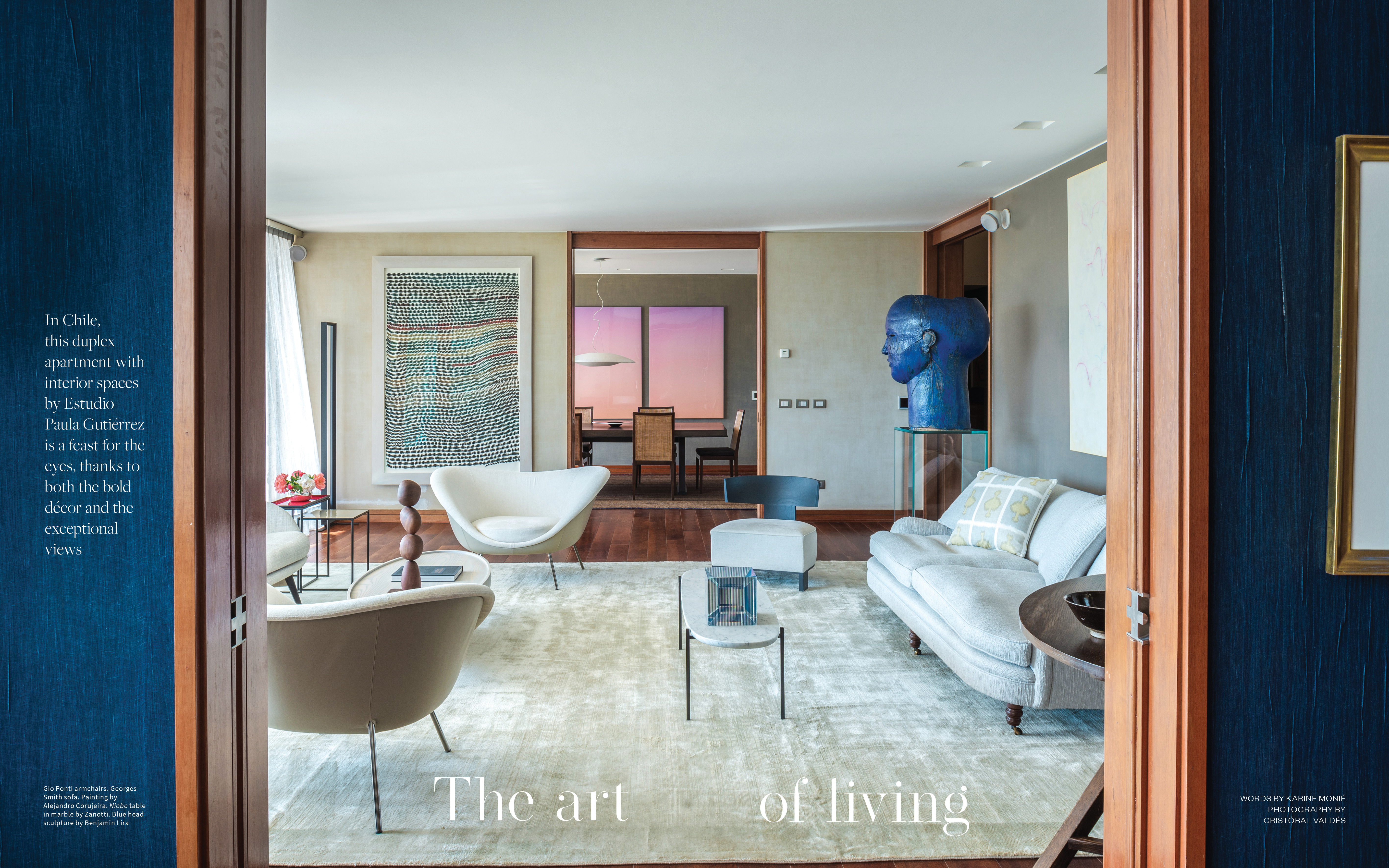
This made reflect on the fact that while the relationship between artist and artisan dates back centuries, it is quite remarkable to see that, many years later, these bonds remain resilient while also leaving room for evolution.
Read the full issue on ISSUU here.
The Latest
Textures That Transform
Aura Living’s AW24 collection showcases the elegance of contrast and harmony
Form Meets Function
Laufen prioritises design, functionality and sustainability in its latest collections
Preserving Culture, Inspiring Creativity
Discover the Legacy of a Saudi Art Space: Prince Faisal bin Fahd Arts Hall explores the Hall’s enduring influence on the cultural fabric of Saudi Arabia
Channelling the Dada Spirit
Free-spirited and creative, The Home Hotel in Zurich injects a sense of whimsy into a former paper factory
id Most Wanted- January 2025
Falaj Collection by Aljoud Lootah Design
Things to Covet in January
identity selects warm-toned furniture pieces and objets that align with Pantone’s colour of the year
Shaping the Future of Workspaces by MillerKnoll
Stacy Stewart, Regional Director Middle East & Africa of MillerKnoll discusses the future and evolution of design in workspaces with identity.
Shaping Urban Transformation
Gensler’s Design Forecast Report 2025 identifies the top global design trends that will impact the real estate and built environment this year
Unveiling Attainable Luxury
Kamdar Developments has launched 105 Residences, a new high-end development in Jumeirah Village Circle.
The Muse
Located in the heart of Jumeirah Garden City, formerly known as ‘New Satwa’, The Muse adds to the urban fabric of the area
Cultural Immersion Meets Refined Luxury
The Chedi Hegra opens its doors in AlUla’s UNESCO World Heritage Site
Redefining Coastal Luxury
Sunshine Bay on Al Marjan island combines seaside views, exceptional design, and world-class amenities to create a unique waterfront haven


